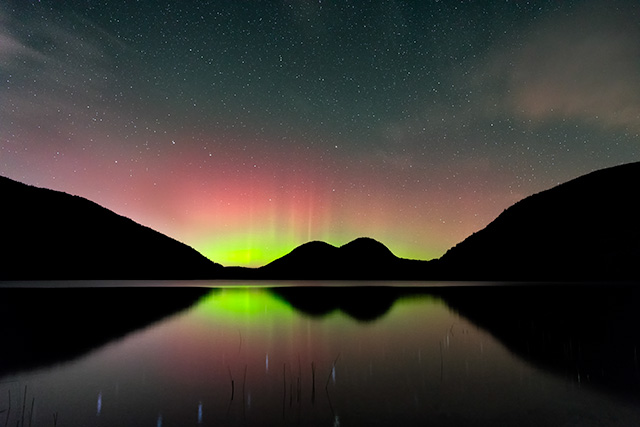The best astrophotography lenses for your mirrorless camera
posted Tuesday, July 5, 2022 at 4:40 PM EDT
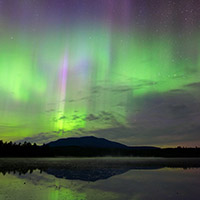
As far as specific types of photography go, night sky photography is relatively accessible. You can capture images of the night sky with almost any camera and wide-angle lens, so long as you have good camera support. However, while a kit lens can work for astrophotography, you'll find that your images improve significantly by purchasing a lens that's often wider and always faster.
What makes a lens good for night sky photography? Primarily, a wide field of view and a fast maximum aperture. In full-frame terms, a focal length from 10mm to 24mm is often great. You can use a longer lens, such as 35mm or even 50mm in some cases, but most of the time, an ultra-wide angle or wide-angle lens is your best bet. As for aperture, the faster, the better. F1.4, F1.8, F2 and F2.8 are all good. For a prime lens, F1.4 and F1.8 are realistic and affordable. If you're using a wide-angle zoom lens, the best you can do is typically F2.8.

There are other considerations that aren't as obvious when looking at a lens's technical specifications. As for optical performance, comatic aberration is an aberration that can rear its ugly head during night sky photography. Lenses designed with astrophotography in mind are often constructed in such a way to reduce comatic aberration (coma). Unlike vignette and lens distortion, there's no easy way to address and fix coma during post-processing. Coma occurs when light from a single light source, such as a star, isn't projected at the same size across the entire image circle. When photographing the night sky, this means that when using a lens that exhibits comatic aberration, a star may be perfectly circular in the center of the frame but a star near the edge or in the corners will be irregularly shaped, perhaps even triangular or shaped like a guitar pick. There are other aberrations, like chromatic aberration, where a star may have false color edges on one side or the other, but chromatic aberration can typically be corrected with automatic lens corrections or manual editing techniques.

There are many excellent lenses for night sky photography available for each mirrorless camera system. Fortunately, not all of them are very expensive, although many wide-angle lenses, especially fast ones and zoom lenses, are more than $1,000. This guide will break down the best choices for each mirrorless camera system and provide options for different budgets. Each section is ordered by ascending price, meaning that the most affordable options appear first. If you'd like to jump straight to your camera system, use the links below.
- The best astrophotography lenses for Sony E cameras
- The best astrophotography lenses for Canon RF cameras
- The best astrophotography lenses for Nikon Z cameras
- The best astrophotography lenses for Fujifilm X cameras
- The best astrophotography lenses for Micro Four Thirds
- The best astrophotography lenses for Panasonic, Leica and Sigma cameras
- Summary and honorable mentions
• • •
The best astrophotography lenses for Sony E mount
Sony E-mount users have so many amazing options for night sky photography lenses. There are so many great lenses that don't make the cut for inclusion in this list but are still worthy of considering, including the Laowa 15mm F2 FE Zero-D ($750) and Sigma 14mm F1.8 DG HSM Art ($1,600). However, I've tried to keep each section capped at a maximum of five lenses, which doesn't eliminate many great choices on most camera systems, but it's a limiting factor for E mount.
Sony FE 20mm F1.8 G
20mm is a great focal length for night sky photography. It's also often a relatively affordable one, especially when it comes to F1.8 prime lenses. Sony's version is no exception, as the $900 lens is the most affordable option to make our list.
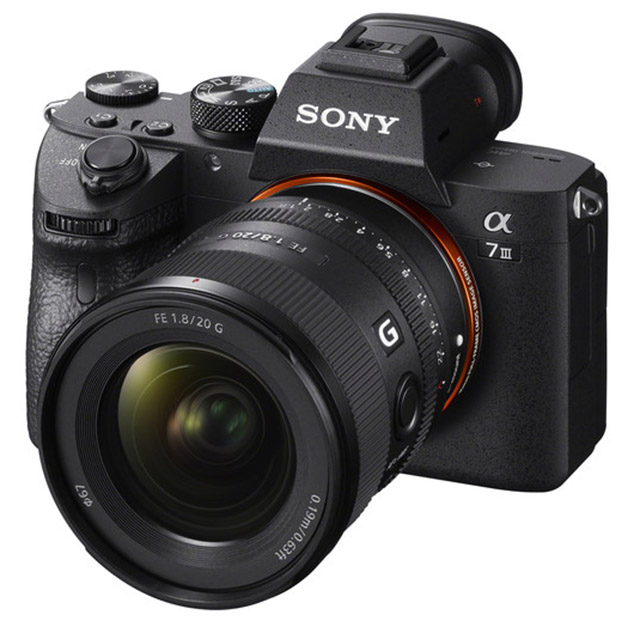
Thanks to its fast F1.8 aperture, you'll be able to capture beautiful night sky images at lower ISO settings and with faster shutter speeds than an F2.8 lens. You have room to stop down to reduce the vignette and improve overall image quality without sacrificing the light-gathering advantage.
Buy now: $900
Try it before you buy it? – Rent this lens from Lensrentals
Zeiss Batis 18mm F2.8
Zeiss makes many great lenses, but the Zeiss Batis 18mm F2.8 stands out as Zeiss's best choice for night sky photography. With an F2.8 maximum aperture, it's not especially fast for a prime lens, but it has impeccable image quality. It also includes an integrated OLED information display to show you your focus distance and depth of field, which is helpful when dialing in manual focus during night sky photography.
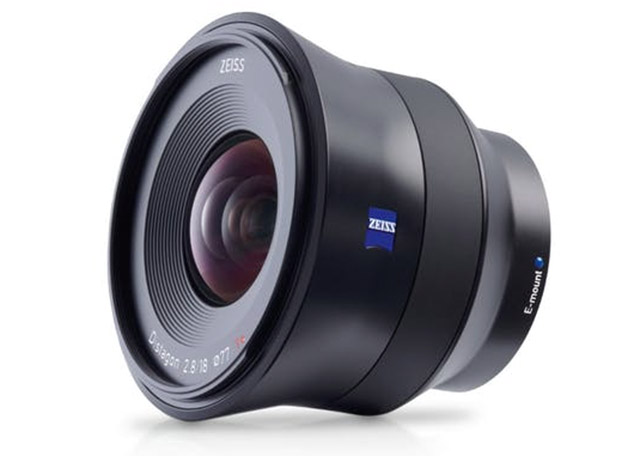
In addition to the slightly slow maximum aperture, the Batis 18mm F2.8 is also pretty expensive. The lens is $1,550 and for only $50 more, you can get the next lens on our list.
Buy now: $1,550
Try it before you buy it? – Rent this lens from Lensrentals
Sony FE 14mm F1.8 GM
For night sky photography, you'll be hard-pressed to find a better ultra-wide option than the Sony 14mm F1.8 GM. The only reason the Sigma 14mm F1.8 didn't make the cut in this section is because of this Sony lens. It's smaller and lighter, and it delivers better optical performance. All G Master lenses are impressive, but the 14mm F1.8 GM stands among Sony's best.

However, $1,600 is a lot of money. If you aren't very interested in night sky photography, the Sony FE 20mm F1.8 G is likely a better option, especially since it's $700 less expensive. But for photographers who are serious about astrophotography and have the budget for the Sony 14mm F1.8 GM, you won't be disappointed.
Buy now: $1,600
Try it before you buy it? – Rent this lens from Lensrentals
Sony FE 16-35mm F2.8 GM
Compared to the 14mm F1.8 GM, the 16-35mm F2.8 GM delivers more versatility. It is a zoom lens, for starters, plus it accepts screw-on filters. If you're looking for an all-around amazing landscape lens, the 16-35mm is a better choice than the 14mm prime, although the 14mm lens is better for night sky photography. For the added versatility and reach of the zoom lens, you need to pay an additional $600, which is no small amount.
Buy now: $2,200
Try it before you buy it? – Rent this lens from Lensrentals
Sony FE 24-70mm F2.8 GM II
For even more versatility, it's tough to top the venerable 24-70mm F2.8 standard zoom lens. Sony just released its latest version, the FE 24-70mm F2.8 GM II, within the last couple of months. It's smaller and lighter than the original while offering better image quality and improved autofocus performance. However, it's $2,300. If you want to save a bit, the original 24-70mm F2.8 GM lens is still in production and is currently available for $2,000. From a landscape photography perspective, the original version remains a great choice given its stellar image quality. However, if you're a fan of the latest and greatest and want the best Sony offers, the "II" version is the way to go.
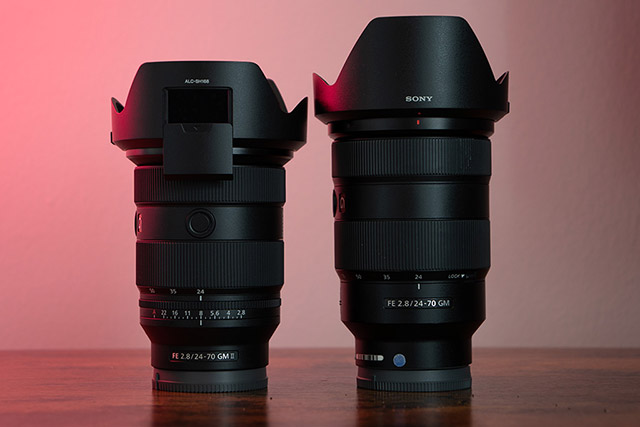
Buy now: $2,300
Try it before you buy it? – Rent this lens from Lensrentals
What if you have an APS-C Sony E-mount camera?
If you have an APS-C camera, like the Sony A6400, A6600 or ZV-E10, Sony recently released a fast wide-angle APS-C lens that could work well for night sky photography, the Sony 11mm F1.8. It's a $550 lens, which is a reasonable price.
Buy now: $550
Try it before you buy it? – Rent this lens from Lensrentals
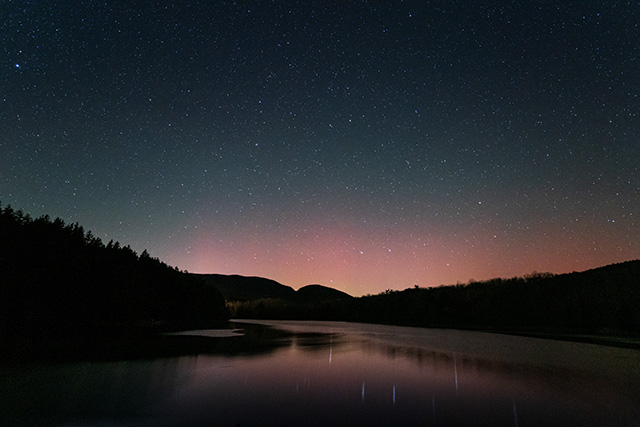
Another great option is the Tamron 11-20mm F2.8 Di III-A RXD lens. The 17-30mm equivalent lens is a fantastic option for night sky photography and more general-purpose landscapes, too.
Buy now: $650
Try it before you buy it? – Rent this lens from Lensrentals
• • •
The best astrophotography lenses for Canon RF mount
For Canon RF, there are only a few good options for native RF lenses. However, the good news is that there are choices for different budgets.
Rokinon 14mm F2.8 AF
This is a strange situation because this lens is oddly difficult to track down. For example, I can't find it on B&H, which is almost unheard of. However, the lens is listed on Rokinon's website, although it's currently sold out. Rokinon is a reputable company that makes high-quality, often affordable, lenses. In this case, the 14mm F2.8 AF has, as its name suggests, autofocus. It's also an ultra-wide lens with a reasonably fast aperture.
I'm not sure when the lens will be available again, but when it is, it's $699, which is an excellent price for a fast wide-angle prime lens. The lens is available to rent, though, which you can do via the link below.
Try it before you buy it? – Rent this lens from Lensrentals
Laowa 15mm F2 FE Zero-D
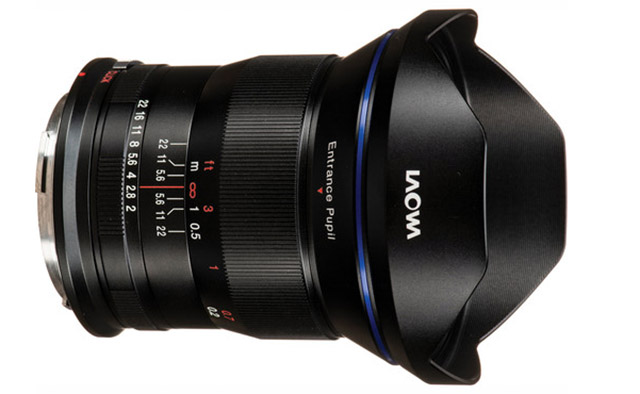
If you want something faster in stock right now, the Laowa 15mm F2 FE Zero-D is a pretty good fast prime lens we reviewed on Sony E mount. It's a manual focus lens, so that's something to keep in mind, but it delivers good image quality at a reasonable price. It suffers from some comatic aberration when shot wide open, at least in the corners, but I think it's still worthy of consideration for night sky photography.
Buy now: $749
Try it before you buy it? – Rent this lens from Lensrentals
Canon RF 15-35mm F2.8 L IS USM
At $2,400, this lens is well into "expensive" territory. However, for the very high price point, you get a fantastic, fast zoom lens that will work well for night sky photography and become a staple in any landscape photographer's kit. Further, as of now, it's the best native RF option Canon has. Here's hoping they come out with a fast wide-angle prime lens soon, such as an RF version of its 24mm F1.4L II USM lens.
Buy now: $2,400
Try it before you buy it? – Rent this lens from Lensrentals
Canon RF 24-70mm F2.8 L IS USM
Canon has two fast standard zoom options, the RF 24-70mm F2.8 L IS USM and the RF 28-70mm F2 L USM. The latter option is faster, but it's also not as wide, and it costs $3,100. Plus, it doesn't have image stabilization and is large and heavy. For all those reasons, we're instead recommending the RF 24-70mm F2.8 L IS USM for EOS R-series photographers that want a versatile zoom lens that is also well-suited to capturing night sky photographs.

The RF 24-70mm F2.8 won't offer the same breathtaking, wide night sky shots as the RF 15-35mm F2.8 L IS USM, but the longer lens is more useful for a wider range of photographic applications. If you value night sky performance over all else, go with the 15-35mm. If you prefer versatility, the 24-70mm F2.8 is a great, albeit very expensive, option.
Buy now: $2,400
Try it before you buy it? – Rent this lens from Lensrentals
• • •
The best astrophotography lenses for Nikon Z mount
Despite launching around the same time, Nikon has done slightly better than Canon with expanding its mirrorless lens lineup. The Nikkor Z series includes some great astrophotography choices, although none are super affordable.
Nikon Z 24mm F1.8 S Nikkor
Like the 20mm lens below, we've not done a full review of the Nikon Z 24mm F1.8 S. However, we won't hesitate to recommend it, given Nikon's excellent suite of Z lenses. 24mm is on the slightly longer end for astrophotography, although I won't hesitate to shoot at 35mm, or even 50mm, in some cases, so 24mm is plenty wide.
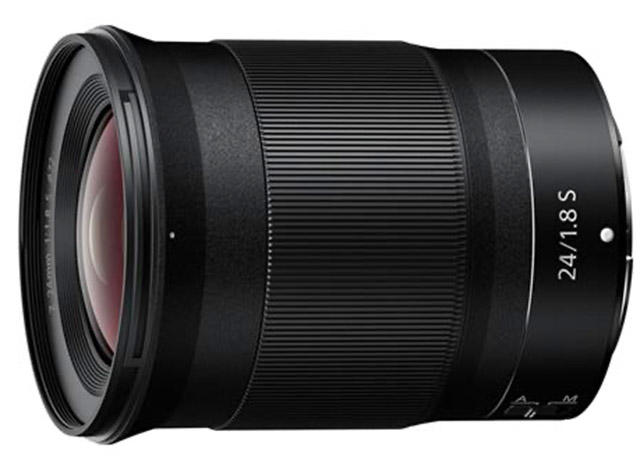
Buy now: $1,000
Try it before you buy it? – Rent this lens from Lensrentals
Nikon Z 20mm F1.8 S Nikkor
The Nikon Z 20mm F1.8 S is an ultra-wide prime lens with Nikon's S-Line designation. It promises high-end optical quality, build quality and overall performance. While we haven't gone hands-on with this specific lens, we've used enough Nikon Z lenses to know they're all good, especially the S-Line options. If the Z-mount version is anything like the older AF-S 20mm F1.8G for F-mount, then it's a great astrophotography lens.
Buy now: $1,050
Try it before you buy it? – Rent this lens from Lensrentals
Nikon Z 24-70mm F2.8 S Nikkor
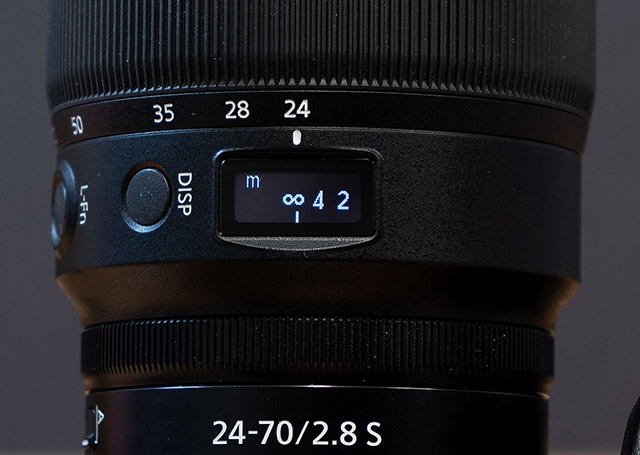
The Nikon Z 24-70mm F2.8 S Nikkor isn't quite as wide as I typically like for astrophotography, but it's still a great option. For someone who wants a more general-purpose zoom lens, it might be the best overall choice in the Z system. While the 14-24mm F2.8 S is likely better for night sky photography thanks to its wider field of view, the 24-70mm F2.8 S is more useful for general landscape images. Thanks to its longer zoom, it can even be used for travel and portrait photography.
Buy now: $2,300
Try it before you buy it? – Rent this lens from Lensrentals
Nikon Z 14-24mm F2.8 S
The original Nikon 14-24mm F2.8 lens for Nikon F mount was one of the company's crowning achievements of the 21st century. I understand that's a mighty big statement, but the lens was so good that some professional photographers bought Nikon cameras just to use it. Not many lenses have that much power. The 14-24mm ushered in a new era of wide-angle zoom lenses and other companies quickly developed new zooms to compete. The all-new Z 14-24mm F2.8 S is a modern take on an absolute classic of a lens, and it's one of the Z system's best performers.

The Z 14-24mm F2.8 S Nikkor is smaller and lighter than its DSLR predecessor while delivering even better image quality, especially when shooting wide open. At $2,400, the Z 14-24mm F2.8 is an expensive lens, but it's also incredible. Further, since the lens accepts screw-on filters, something its DSLR sibling doesn't do, it's also a stellar option for landscape photography.
Buy now: $2,400
Try it before you buy it? – Rent this lens from Lensrentals
• • •
The best astrophotography lenses for Fujifilm X mount
While people think about full-frame cameras for night sky photography, the Fujifilm X series is full of APS-C cameras that deliver excellent low-light performance. Further, some great lenses are available to take full advantage of Fujifilm's impressive image quality.
Fujinon XF 16mm F2.8 R WR
As far as options go for Fujifilm X cameras, none are more affordable than the XF 16mm F2.8 R WR. The lens came out just a few years ago and delivers great all-around wide-angle performance. The $400 lens is compact and lightweight and offers weather resistance (WR). A downside is that the 24mm equivalent lens is "only" an F2.8, but that's a minor complaint against an otherwise great option. Plus, at its price, it's a great way to get your feet wet with astrophotography and is a nice step up from a slower kit lens.
Buy now: $400
Try it before you buy it? – Rent this lens from Lensrentals
Fujinon XF 16mm F1.4 R WR
For just over double the price, you can get the same focal length with a much faster F1.4 aperture in the form of the XF 16mm F1.4 R WR. The F1.4 version is quite a bit older, but it remains one of the best lenses in the Fujifilm lineup. It features great build quality and strong optical performance. Plus, for astrophotography, the F1.4 aperture is fantastic. The lens is currently on sale for $850, but its list price is $1,000.

Buy now: $850
Try it before you buy it? – Rent this lens from Lensrentals
Fujinon XF 14mm F2.8 R
The XF 14mm F2.8 R is slightly wider than the previous two options, offering a 21mm equivalent focal length. That's a bit better for night sky photography, but the lens is also slower than the XF 16mm F1.4. Unlike the 16mm primes, the 14mm F2.8 lacks the "WR" designation, meaning it isn't built to withstand harsh weather. It's a worthy inclusion on our list, but the XF 14mm F2.8 R is probably not the best option.
Buy now: $900
Try it before you buy it? – Rent this lens from Lensrentals
Zeiss Touit 12mm F2.8
IR reader Casper Marly pointed this one out in the comments and it's a worthy addition to the list. The Zeiss Touit 12mm F2.8 is available for Fujifilm X mount and APS-C Sony E cameras. We've never gone hands-on with this lens ourselves, but reviews from others suggest that it's a sharp, high-quality lens. Lonely Speck remarked that it's a bit tricky to manually focus, but that's a minor issue overall. The 16mm-equivalent focal length is a great choice for night sky photography and the F2.8 aperture is plenty bright enough, especially considering the impressive high ISO performance of many of Fujifilm's X Series cameras.
Buy now: $900
Try it before you buy it? – Rent this lens from Lensrentals
Fujinon XF 8-16mm F2.8 R LM WR
The widest – and only zoom lens – on our Fujifilm X list is the excellent XF 8-16mm F2.8 R LM WR. It offers a 12-24mm-eq. focal length range that's fantastic for astrophotography. It also includes a linear motor to deliver great autofocus, which while useless for night sky shooting, is great for other types of photography.
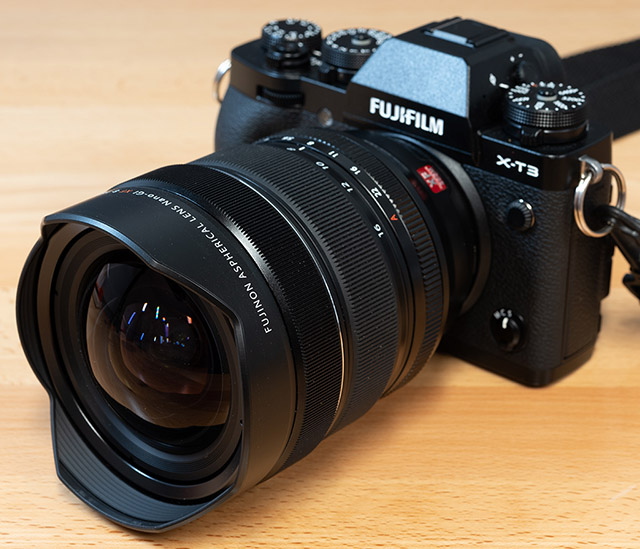
There are two primary knocks against the lens. One, it's expensive. It's regularly $2,000, although it's currently on sale for $1,700. The second issue is that the lens doesn't accept screw-on filters, so it's not necessarily a great lens for general landscape photography. It depends upon how often you use a circular polarizing filter. I use CPL filters almost always, but I know that some photographers never use them. Your mileage may vary.
Buy now: $1,700
Try it before you buy it? – Rent this lens from Lensrentals
• • •
The best astrophotography lenses for Micro Four Thirds
Micro Four Thirds cameras aren't typically considered astrophotography cameras, but you can still capture great night sky images despite the smaller sensor size. There are some good lenses for Micro Four Thirds as well. Whether you have an Olympus, OM System or Panasonic M43 camera, you have options.
Panasonic Leica DG Summilux 9mm F1.7 ASPH
The Panasonic 9mm F1.7 is a new lens, having just been announced this spring. It's also a lightweight, compact lens with an 18mm equivalent focal length and F1.7 aperture. It's also only $500, making it one of the more affordable lenses in this buyer's guide.
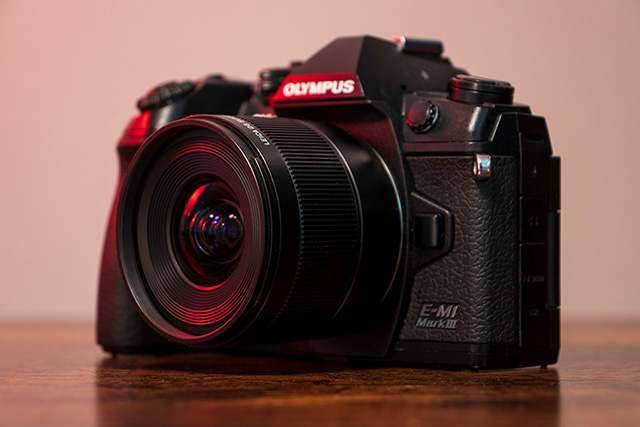
Buy now: $500
Try it before you buy it? – Rent this lens from Lensrentals
OM System 12-40mm F2.8 PRO II M.Zuiko Digital ED
The OM System 12-40mm F2.8 PRO II is a 24-80mm-equivalent lens, so it's well-suited to night sky photography and more general landscape, travel and portraits. It's an updated version of the Olympus 12-40mm F2.8 zoom lens, which is still available for $800.
Buy now: $1,000
Try it before you buy it? – Rent this lens from Lensrentals
Olympus 7-14mm F2.8 PRO M.Zuiko Digital ED
If you want a wider F2.8 zoom and don't mind not being able to use screw-on filters, the Olympus 7-14mm F2.8 is a great choice. It's a 14-24mm equivalent lens, so it is plenty wide for night sky photography. At $1,300 (regularly $1,400), it's tied with the next lens for the most expensive option for Micro Four Thirds, but it's competitively priced against equivalent lenses for cameras with larger image sensors.
Buy now: $1,300
Try it before you buy it? – Rent this lens from Lensrentals
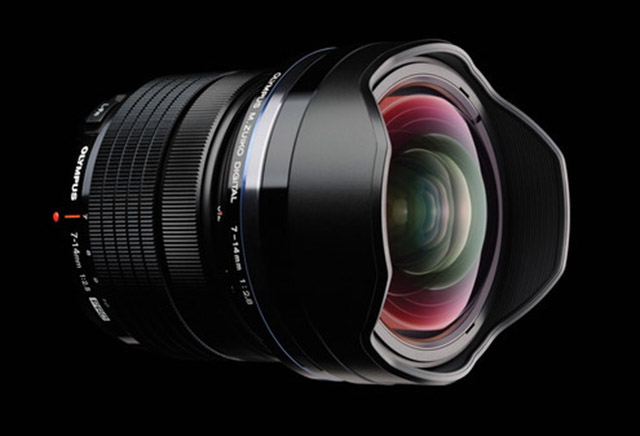
Panasonic 12mm F1.4 ASPH Leica DG Summilux
This 24mm-equivalent prime offers a slightly faster aperture than the Panasonic 9mm lens, but it's slightly less wide-angle. It's a tradeoff and a significant price difference. The Panasonic Leica 12mm F1.4 lens is $1,300, which is $800 more than the wider, slower Panasonic prime lens.
Buy now: $1,300
Try it before you buy it? – Rent this lens from Lensrentals
• • •
The best astrophotography lenses for L mount
There are L-mount cameras from Leica, Panasonic and Sigma, but you'll notice three of the four lenses below are all from Sigma. The Sigma lenses are also all "Art" lenses, meaning they deliver Sigma's best image quality. Some Sigma lenses, like the 14mm F1.8 and 14-24mm F2.8, would have popped up in the Sony section, too, if not for Sony offering great options.
Sigma 20mm F1.4 DG HSM Art
The Sigma 20mm F1.4 DG HSM Art is a fast, wide lens that delivers excellent image quality. At the time of its release, it was Sigma's widest "Art" lens yet, and it has stood the test of time. Somewhat strangely, given that it's a 20mm lens, it doesn't have a filter thread. However, it's still a great choice for astrophotography and landscape photography.
Buy now: $900
Try it before you buy it? – Rent this lens from Lensrentals
Sigma 14-24mm F2.8 DG DN Art
If you want more versatility, the Sigma 14-24mm F2.8 Art lens is for you. We tested the lens on Canon EF and Nikon F mount, but there's no reason to expect that it's not just as good on L (or E) mount. It's the most affordable 14-24mm zoom on the market, in some cases by about $1,000, and it's a great all-around ultra-wide zoom lens. It is heavy, so you'll need to keep that in mind when doing long exposure night sky photography. A good tripod is a must.
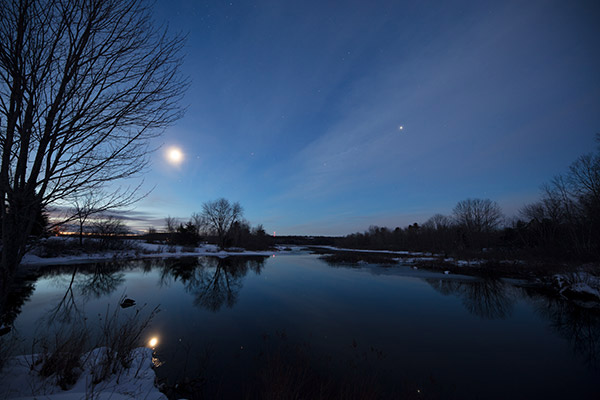
Buy now: $1,300
Try it before you buy it? – Rent this lens from Lensrentals
Sigma 14mm F1.8 DG HSM Art
Do you want a 14mm focal length and a fast F1.8 aperture? The Sigma 14mm F1.8 DG HSM Art lens is for you. It's a great lens with excellent image quality. Like the 14-24mm zoom, the Sigma 14mm F1.8 is large and heavy. It weighs 1,170 grams (2.6 pounds). However, if you can look past the large size, you're treated to a fantastic ultra-wide angle lens for astrophotography.
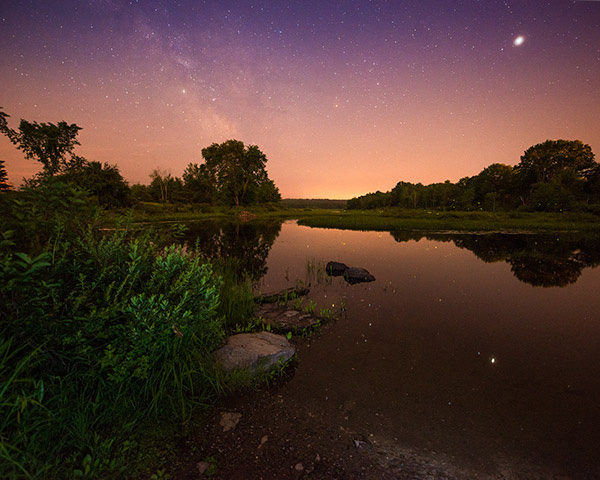
Buy now: $1,600
Try it before you buy it? – Rent this lens from Lensrentals
Panasonic 24-70mm F2.8 Lumix S Pro
The first Panasonic lens to make the L-mount list is the 24-70mm F2.8 standard zoom lens. The S Pro lens delivers amazing image quality and more versatility than any of the previous lenses. You can use it for landscape, portrait, and night sky photography. Its overall usability comes at a price. $2,200, to be precise. It's a staple lens for most enthusiasts and professional photographers alike, so you'll probably get a lot of use out of it, but there's no doubt it's a pretty pricey option.
Buy now: $2,200
Try it before you buy it? – Rent this lens from Lensrentals
• • •
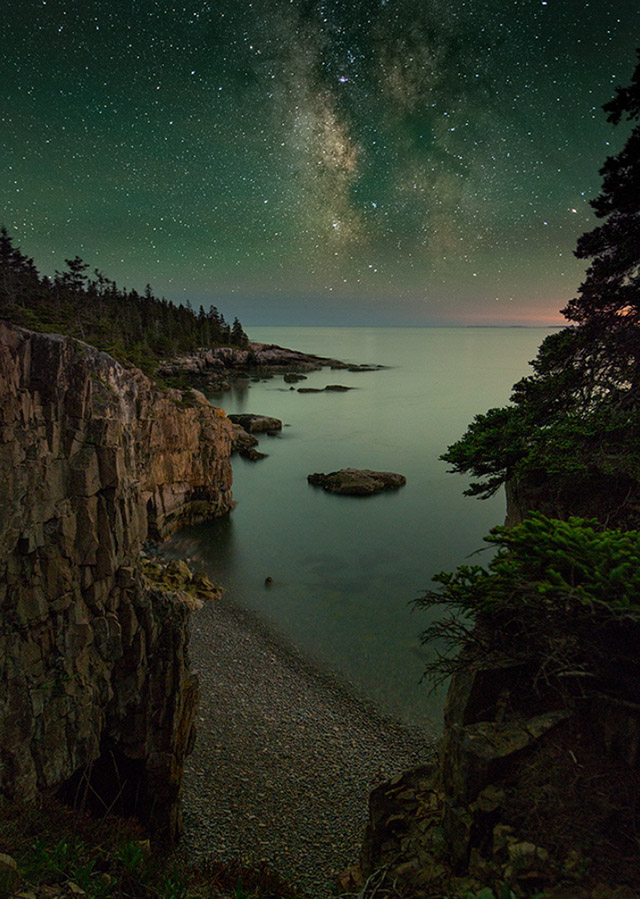
Summary
There you have it, a bunch of amazing lenses for capturing night sky photos no matter what mirrorless camera system you use. Before closing, it's worth pointing out that you can also seek DSLR lenses and adapt them to your mirrorless camera systems. While we avoided listing them, as the focus is on mirrorless cameras and lenses, I wanted to throw out a few options for photographers looking to save money or scour the used market. There are a lot of EF and F mount lenses out there, for example, and you can find used versions for sometimes half off the original retail price. There are also great lenses that didn't make the cut. You should consider the list below a catalog of "honorable mention" lenses.
- Rokinon 14mm F2.8 – Canon EF, Nikon F, Pentax K – Manual focus - $275
- Rokinon 20mm F1.8 – Canon EF, Nikon F – Manual focus - $500
- Rokinon 24mm F1.4 – Canon EF, Nikon F, Pentax K – Manual focus - $450
- Tamron 15-30mm F2.8 Di VC USD G2 – Canon EF, Nikon F - $1,300
- Tamron 17-28mm F2.8 Di III RXD – Sony E - $900
